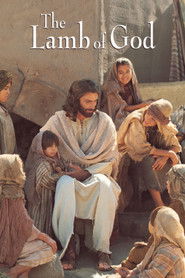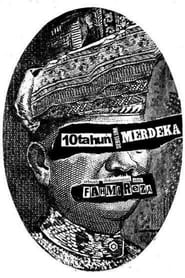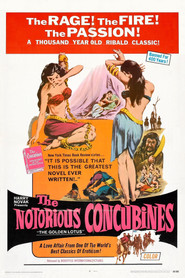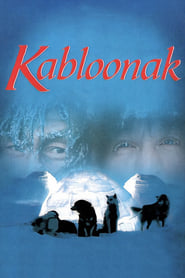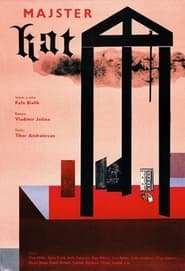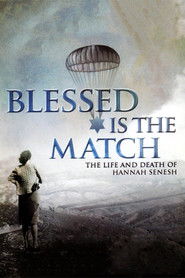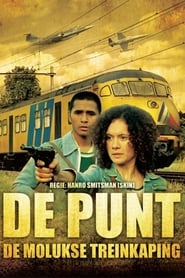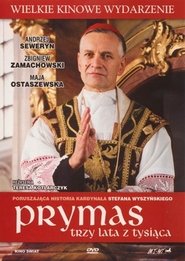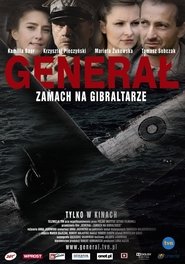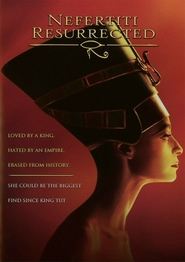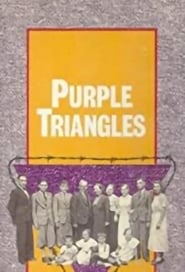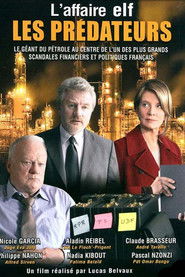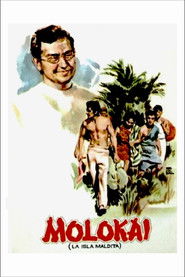Top Rated History Movies - Page 336
-
The Lamb of God
1992
The Lamb of God
1992
star 6.8Portrays the dramatic events of the last hours of Jesus' life and his resurrection. -
Cyrano de Bergerac
1985
Cyrano de Bergerac
1985
star 5.5As incomparable in swordplay and wordplay as he is, the gallant soldier, philosopher, and poet Cyrano de Bergerac is as timid as a schoolboy before the fair Roxanne. Derek Jacobi delivers an electrifying award-winning portrayal of Rostand's legendary log-nosed swordsman in this highly acclaimed production from the world's premier theatre troupe, The Royal Shakespeare Company. The bold Cyrano boasts he can defeat a hundred men in a swordfight, but because of his grotesque nose lacks the confidence to court the woman he loves. Yet so entranced with Roxanne is Cyrano that he uses the eloquence of his poetry to woo her for a rival. -
A More Perfect Union
1989
A More Perfect Union
1989
star 6.8Become an eyewitness to the Constitutional Convention of 1787. This stirring 2-hour film will bring the Founding Fathers to life as you witness the struggles and the miracles that produced the Constitution of the United States and the freest nation on earth. Filmed on location at Independence Hall; Williamsburg, Virginia; and other historical sites, it dramatically chronicles how America became a nation. It is exciting drama of the best kind-fact, rather than fiction. "It brings the history books to life," writes one reviewer. "Dramatically moving, and visually handsome," says another. Officially recognized by the Commission on the Bicentennial of the United States Constitution, who cited the film as being "of exceptional merit." -
Ten Years before Independence
2007
star 6October 20th, 1947 was a historical day in the Malayan people's constitutional struggle for independence from British colonialism. This documentary chronicles the events that culminated in the Malaya-wide 'Hartal' day of protest against the undemocratic Federation of Malaya Constitutional Proposals devised by the British Colonial Government, and the rise of the people's democratic movement in Malaya, ten years before independence. -
The Notorious Concubines
1968
star 3Dark, cynical Japanese epic brought to U.S. in a dubbed version by shlockmeister Harry Novak. Still, this gory, sexy epic is made with style and interesting for to compare to "Yojimbo" and other masterworks of the form. -
Kabloonak
1994
Kabloonak
1994
star 6.7In 1922 the first documentary in the genre sense came on the big screen, "Nanook of the North" (1922). Kabloonak is the story of the making of this movie for which the story was partially staged by his director 'Robert Flaherty'. -
Texas '46
2002
Texas '46
2002
star 4.3Based on a true story its the untold story of Italian World War II POW"S in Jan 1946. Luca Zingaretti stars as one of over 50,000 Italian Prisoners of War detained at POW camps in the U.S. Roy Schneider stars as Colonel Gartner, the Commander of the camp. Things take a turn for the worse when Manin is brought back from his most recent escape by a patrol force, only to realize that the camp has been evacuated while he was gone. Gartner is forced to keep Manin at the camp until another patrol force can come pick him up. However, no one ever comes. The phone lines get cut, and the two men realize they are completely isolated from the outside world. It is up to each man now to escape the camp.An untold and rarely known fact of US held Italian POW"S -
Master Executioner
1966
Master Executioner
1966
star 3A dramatic story about two friends - fisherman Richardus and municipal executioner Emil Targo takes place at the river Danube, in places that used to be targets of Ottoman raids. But their attraction to the same woman and Emil’s betrayal change their indissoluble friendship to an equally strong hatred. And as it usually goes - after twenty years by a trick of fate Richardus’ daughter Agajka becomes the wife ofthe sun of his sworn enemy. -
Blessed Is the Match: The Life and Death of Hannah Senesh
2009
star 7.3The story of Hannah Senesh, a Hungarian poet who was captured by the Nazis, while trying to rescue Jews in WWII. -
Go to Hell!!
1997
Go to Hell!!
1997
star 4Based on the premise that "God" is actually an alien called G.D., who wiped out the dinosaurs and populated the Earth with apes from his own planet (who eventually evolve into us). "The Devil" is actually his son, "Little Red", who disagrees with what he is doing and pops up throughout history trying to upset G.D.'s plans. -
De Punt
2009
De Punt
2009
star 6.7More than 30 years after the dramatic ending of a train hijack five people involved meet each other on a television show. Starting point is the death of the only female hijacker: Noor. One by one the five enter the studio. Each with their own expectations or hidden agenda. -
Prymas. Trzy lata z tysiąca
2000
star 6Cardinal Stefan Wyszyński is secretly abducted from the Primate’s Palace and sent into solitary confinement at Stoczek Warmiński, accompanied by Father Stanisław, recently freed from Rawicz, and Sister Leonia, coerced from Grudziądz, forming an unlikely retinue in his enforced exile. As state spies and the camp commandant conspire to break the Primate’s resolve, Father Stanisław risks everything to smuggle word of Wyszyński’s whereabouts to the outside, hoping to foil the regime’s darkest “third variant.” -
The General - Attempt at Gibraltar
2009
star 2.7The film presents the last days of Gen. Sikorski, right before the Gibraltar catastrophe. The commander is accompanied by his daughter Zofia and a group of closest collaborators. They are all guests in the palace of the Governor of Gibraltar, Mason Macfarlane, who is supposed to persuade Sikorski to give back documents on the murder of Polish officers in Katyn. When Sikorski refuses, a plan of attempt on his life comes into action. Who stood behind it? Who executed it and how? Was Zofia on board of Liberator too? -
Nefertiti: Resurrected
2003
star 6.7Has the famed Egyptian beauty, Queen Nefertiti, been found in a secret chamber deep in the Valley of the Kings? A Discovery Channel Quest expedition led by Dr. Joann Fletcher and a team of internationally renowned scientists from the University of York Mummy Research Team hopes to find out. If they find her, it will be one of the greatest archaeological discoveries since Nefertiti's stepson, King Tutankhamen, was discovered in 1922. The "Great Royal Wife" of the renegade Akhenaten, Nefertiti was a mother of six who helped lead a religious revolution that changed Egypt and the world forever. Yet after her death, her enemies destroyed all evidence of her life. Now, drawing on 13 years of research, Fletcher and her team bring Nefertiti's turbulent reign to life like never before with cutting-edge computer animations to recreate ancient Egypt's great temples, x-rays to reveal the telltale signs of foul play on her mummy, and forensic graphics to recreate the mummy's face. -
Purple Triangles
1991
Purple Triangles
1991
star 6.5A documentary released on DVD alongside the related documentary "Faithful Under Trials—Jehovah's Witnesses in the Soviet Union" -
The Elf Case
2007
The Elf Case
2007
star 5In 1988, after much cunning political maneuvering, Loïk Le Floch-Prigent and Alfred Sirven become the chief executives at Elf. They discover a company that runs on kickbacks: in exchange for the oil rights, Elf makes handsome but discreet payoffs to the leaders of African nations. With the tacit complicity of President Mitterrand, and with eventual political and personal interests in mind, the new management takes charge of the slush fund. Within months, Sirven, Le Floch-Prigent and his wife Fatima Belaïd fill their pockets with more than they could ever have imagined. -
Brothers at War
2009
Brothers at War
2009
star 5BROTHERS AT WAR is an intimate portrait of an American family during a turbulent time. Jake Rademacher sets out to understand the experience, sacrifice, and motivation of his two brothers serving in Iraq. The film follows Jake’s exploits as he risks everything—including his life—to tell his brothers’ story. -
Israel: Birth of a Nation
1995
star 6.3Sir Martin Gilbert, author of over sixty books and the host of A&E's JERUSALEM, hosts this gripping account of Israel's difficult first years. Filled with rare footage, photographs, and interviews with participants in the War of Independence, this is the definitive document of one of the turning points in modern history. Extraordinary footage filmed by Bernard Beecham, a British soldierBritish sol -
Molokai: la isla maldita
1959
star 4Kingdom of Hawaii, 1866. Fearful that leprosy would spread throughout the archipelago, the king banishes the sick to the island of Molokai. In 1873, the Belgian Catholic missionary Damien de Veuster arrives on the island to help improve the lives of its unfortunate inhabitants. -
Challenge of the Gladiator
1965
star 3.7Treacherous Roman senator Lucius Quintilius plans a secret journey into Thrace to recover a legendary treasure. He is accompanied by his daughter Livia posing as a Christian slave girl, his cruel henchman Commodio, and Terenzius, an ex-gladiator and Nero look-alike who fools the local Thracians into believing he is the real Emperor. But Lucius's plans are thwarted by Spartacus and his band of rebels who succeed in capturing the treasure for Thrace. When news arrives from Rome that the real Nero has died, local Roman governor Consul Metellus joins forces with Spartacus to defeat the traitors.
 Netflix
Netflix
 Amazon Prime Video
Amazon Prime Video
 Apple iTunes
Apple iTunes
 Apple TV Plus
Apple TV Plus
 Disney Plus
Disney Plus
 Google Play Movies
Google Play Movies
 Paramount Plus
Paramount Plus
 Hulu
Hulu
 HBO Max
HBO Max
 YouTube
YouTube
 fuboTV
fuboTV
 Peacock
Peacock
 Peacock Premium
Peacock Premium
 Amazon Video
Amazon Video
 The Roku Channel
The Roku Channel
 AMC+
AMC+
 Kocowa
Kocowa
 Hoopla
Hoopla
 The CW
The CW
 Vudu
Vudu
 Starz
Starz
 Showtime
Showtime
 PBS
PBS
 Pantaflix
Pantaflix
 FXNow
FXNow
 Tubi TV
Tubi TV
 Kanopy
Kanopy
 Comedy Central
Comedy Central
 Crunchyroll
Crunchyroll
 Microsoft Store
Microsoft Store
 Redbox
Redbox
 Sun Nxt
Sun Nxt
 ABC
ABC
 DIRECTV
DIRECTV
 Crackle
Crackle
 Fandor
Fandor
 Plex
Plex
